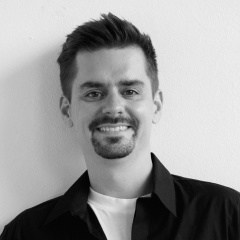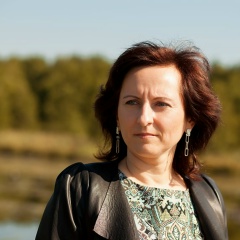Из коментов Сергей Кибальников пишет:
В августе 1998 года только жители Сергиево Посадского района Московской области не заметили дефолта: они приобретали товары не за рубли, а за АСР, обеспеченные киловатт-часами, вырабатываемыми местной Гидроаккумулирующей электростанцией (ГАЭС). Ликвидность этих АСР была очень высокой - ими выплачивалась заработная плата, они принимались через POS терминалы в магазинах и на бензозпаравках, на них можно было купить автомашины и квартиры. Интересно что за АСР приобретать товары и услуги потребителю было выгоднее чем за рубли. Главное - это были "белые" финансовые инструменты, с них ПЛАТИЛИ НАЛОГИ.
Уникальность этого опыта тогда не оценили: миру до СИСТЕМНОГО кризиса надо было идти еще 10 лет.
Сегодня этот опыт умноженных на мощь современных информационно-коммуникационных технологий может дать миру шанс. Обуждение этой темы может привлечь серьезные СМИ и поднять уровень объединеной конференции.
http://www.ok2009.ru/program2/109/
В августе 1998 года только жители Сергиево Посадского района Московской области не заметили дефолта: они приобретали товары не за рубли, а за АСР, обеспеченные киловатт-часами, вырабатываемыми местной Гидроаккумулирующей электростанцией (ГАЭС). Ликвидность этих АСР была очень высокой - ими выплачивалась заработная плата, они принимались через POS терминалы в магазинах и на бензозпаравках, на них можно было купить автомашины и квартиры. Интересно что за АСР приобретать товары и услуги потребителю было выгоднее чем за рубли. Главное - это были "белые" финансовые инструменты, с них ПЛАТИЛИ НАЛОГИ.
Уникальность этого опыта тогда не оценили: миру до СИСТЕМНОГО кризиса надо было идти еще 10 лет.
Сегодня этот опыт умноженных на мощь современных информационно-коммуникационных технологий может дать миру шанс. Обуждение этой темы может привлечь серьезные СМИ и поднять уровень объединеной конференции.
http://www.ok2009.ru/program2/109/
From the comments Sergey Kibalnikov writes:
In August 1998, only residents of the Sergiev Posad District of the Moscow Region did not notice the default: they purchased goods not for rubles, but for ACPs, provided with kilowatt-hours generated by the local Hydroaccumulating Power Plant (PSPP). The liquidity of these billing systems was very high - they paid wages, they were accepted through POS terminals in stores and at gas stations, they could buy cars and apartments. It is interesting that it was more profitable for the consumer to purchase goods and services for the ACP than for rubles. The main thing is that these were "white" financial instruments, TAXES were PAYED from them.
The uniqueness of this experience was not appreciated then: the world had to go for another 10 years before the SYSTEM crisis.
Today, this experience multiplied by the power of modern information and communication technologies can give the world a chance. Discussing this topic can attract serious media and raise the level of the unified conference.
http://www.ok2009.ru/program2/109/
In August 1998, only residents of the Sergiev Posad District of the Moscow Region did not notice the default: they purchased goods not for rubles, but for ACPs, provided with kilowatt-hours generated by the local Hydroaccumulating Power Plant (PSPP). The liquidity of these billing systems was very high - they paid wages, they were accepted through POS terminals in stores and at gas stations, they could buy cars and apartments. It is interesting that it was more profitable for the consumer to purchase goods and services for the ACP than for rubles. The main thing is that these were "white" financial instruments, TAXES were PAYED from them.
The uniqueness of this experience was not appreciated then: the world had to go for another 10 years before the SYSTEM crisis.
Today, this experience multiplied by the power of modern information and communication technologies can give the world a chance. Discussing this topic can attract serious media and raise the level of the unified conference.
http://www.ok2009.ru/program2/109/
У записи 14 лайков,
8 репостов.
8 репостов.
Эту запись оставил(а) на своей стене Алексей Куценко

































